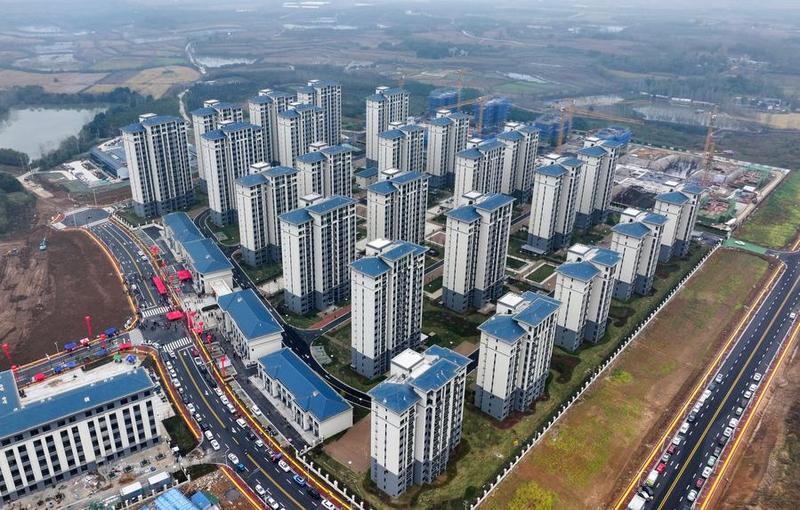New loans to help lift property sector


China has approved bank loans totaling 7 trillion yuan ($981.9 billion) for unfinished real estate projects through a State-coordinated "whitelist" mechanism designed to ensure the completion of stalled housing projects and restore confidence in the tepid property market, analysts said.
"As of now, over 7.5 million presold homes that were previously undelivered have been successfully handed over to buyers across the country, effectively safeguarding the legitimate rights and interests of homebuyers," said Dong Jianguo, vice-minister of housing and urban-rural development.
The government has incorporated real estate development projects that meet the eligibility criteria into a "whitelist" through the urban real estate financing coordination mechanism, providing project financing support to ensure normal construction funding needs and expedite project completion and delivery, Dong said during a news conference on Saturday.
Under the mechanism, local governments, financial regulators and banks jointly vet and nominate developments for a "whitelist". Once approved, these projects gain access to bank credit and other financing, strictly for the purpose of completing construction and delivering presold units.
The system is a direct response to the common practice of developers using presale funds from new projects to service debts on older ones or to finance land purchases elsewhere, leaving construction sites stranded when liquidity is squeezed.
Dong noted that each approved residential project is assigned one primary bank or banking consortium.
"All financial flows, from development capital and construction loans to presale revenues from homebuyers, are funneled into and managed through accounts at that host institution," Dong said. "Meanwhile, the designated bank is obligated to ensure that reasonable financing needs are met to keep construction on track."
Experts said this streamlined financing mechanism helps to address the liquidity challenges faced by real estate developers and provides a reliable guarantee for the timely delivery of homes to buyers.
"The next essential step is strengthening collaborative post-loan supervision," said Li Yujia, chief researcher at the residential policy research center of the Guangdong Planning Institute.
The housing department must verify that construction is proceeding on schedule and that controlling shareholders' capital contributions are fully paid. The financial department should then disburse loans precisely according to physical construction milestones, Li said.
Chen Wenjing, director of policy research at the China Index Academy, said that the success of this approach will be measured not by a rebound in property prices, but by the number of families who finally receive the keys to their homes and the restoration of confidence in the market.
While the immediate goal is to complete presold homes and prevent new projects from stalling, the long-term implication is a structural change in how real estate is financed in China, Chen said.
By tying funding tightly to physical progress on a specific asset, the model discourages the speculative, debt-fueled expansion that characterized the previous era. It fosters a slower, more deliberate pace of development centered on actual demand, Chen added.




































